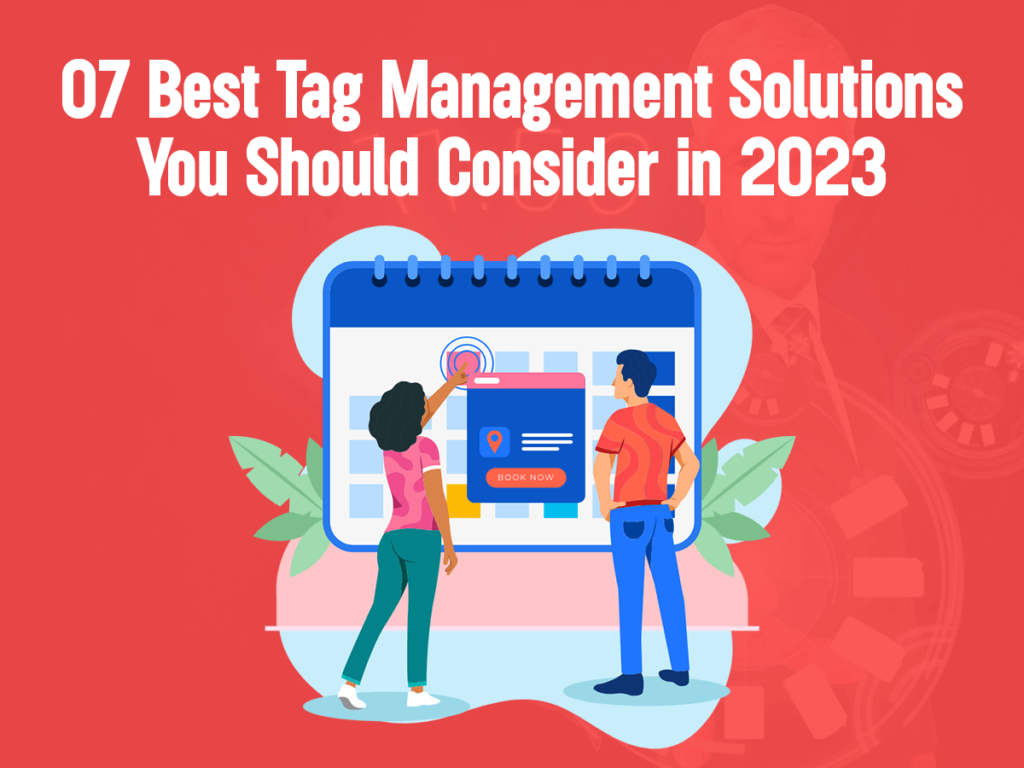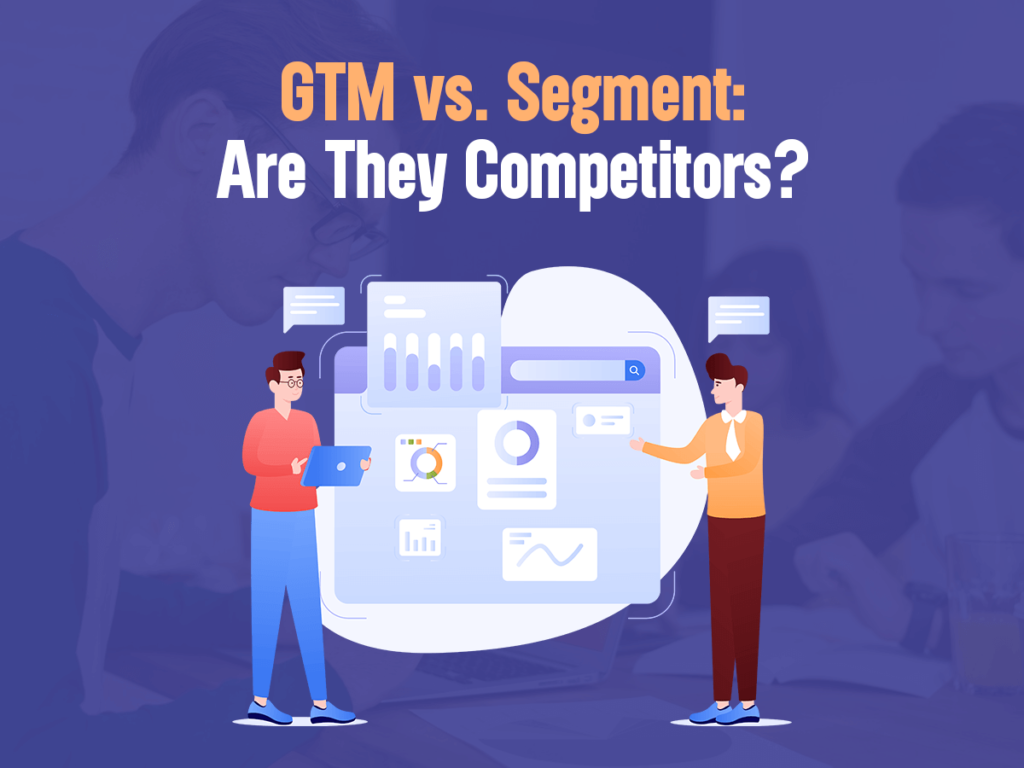What is Tag Management?
Tag management is the practice of using a specialized system or platform to manage and deploy various snippets of code, known as tags, onto a website or digital property. These tags are often used for tracking purposes, such as analytics, advertising, user behavior analysis, and more.
Tag management systems streamline the process by allowing marketers and website managers to add, modify, and organize tags without requiring direct access to the website’s code. This enhances flexibility, reduces the need for manual coding, and facilitates efficient management of data collection and analysis tools across different pages and platforms.
Tag Management Solution
A tag management solution is a software platform that simplifies the process of managing, organizing, and deploying various tracking codes or “tags” on a website or digital platform. Tag management solutions provide a user-friendly interface, allowing users to add, edit, or remove tags without directly modifying the website’s code. This enhances agility, reduces dependence on IT resources, and ensures consistent and accurate data collection. It also enables faster implementation of new tools and technologies, making it a vital component for efficient digital marketing and data analysis strategies.
Benefits of Tag Management Solution
Tag management software offers numerous advantages, including:
– Accelerating webpage loading times
– Empowering authorized staff to swiftly update tags without IT involvement
– Efficiently managing a multitude of tags, even in the hundreds
– Ensuring adherence to privacy regulations for compliance
– Cost savings by removing redundant tags
– Swift testing of diverse marketing strategies
Related:
7 Best Tag Management Solutions You Should Consider
Here’s an expanded overview of seven of the best tag management solutions that you should consider for effectively managing your website’s tags and tracking codes.
Google Tag Manager (GTM):
Google Tag Manager is a popular and easy-to-use tool for managing tags on websites. It helps you put different tracking codes on your site without changing the website’s code directly. With Google Tag Manager, you can manage tags for things like analyzing website traffic, tracking conversions, and showing ads again to people. It’s simple to use because it has a friendly interface. You can set it up to make tags work at specific times or places on your site, giving you control over how you collect data.
Key Features:
– No cost, simple testing
– Designed for marketers with IT compatibility
– User-friendly preview mode
– Multi-account assistance
Adobe Dynamic Tag Manager (DTM):
As part of the Adobe Marketing Cloud suite, Adobe DTM is a powerful tag management solution that integrates well with other Adobe products. It offers advanced customization options for tag deployment, making it suitable for businesses with complex tracking needs. DTM also provides a range of pre-built tag templates and comprehensive debugging tools to ensure accurate tag firing.
Key Features:
– User-friendly interface catering to both technical and non-technical users
– Available at no cost for Adobe Experience Cloud clients
– Marketing-oriented rule builder for tag deployment and data capture decisions
– Extension catalog streamlining the swift and user-friendly addition of new tags
Tealium:
Tealium offers a robust tag management platform that goes beyond basic tag deployment. It provides data orchestration capabilities, enabling you to unify data from various sources and activate it across different marketing and analytics tools. Tealium’s Customer Data Platform (CDP) features allow for more personalized user experiences through effective data collection, enrichment, and activation.
Key Features:
– Seamlessly integrates with leading eCommerce platforms and content management systems
– Abundance of ready-made integrations
– Secure and controlled deployment procedures
– Strong privacy features, including integrated consent management
– Effective management of variables and load rules through an in-platform data layer
TagCommander:
TagCommander offers a user-friendly interface that streamlines tag management tasks. It emphasizes simplification while ensuring compliance with data protection regulations. Features like data layer management and real-time tag updates enhance its versatility, making it a suitable option for businesses looking for efficient tag management.
Key Features:
– Integral component of a comprehensive suite encompassing marketing, analytics, and privacy tools
– Furnishes enterprise-grade support and services
– Furnishes role-based permissions, user-friendly workflows, and comprehensive audit trails
– Over 800 readily available templates for streamlined operations
– No need for technical expertise, facilitated by a wizard-driven interface
Read Also :
Piwik Pro:
Piwik PRO offers a tag manager as part of its services. This tool allows you to efficiently manage and deploy various tracking tags on your website without needing to modify the website’s code directly. With the Piwik PRO tag manager, you can control tags for marketing, analytics, and more. This simplifies the process of collecting data and ensures accurate tracking without the need for technical expertise.
Key Features:
– Ready-made templates for major analytics platforms
– Tag testing in staging environment
– Seamless integration with popular CMS platforms
– Both asynchronous and synchronous HTML tag support
– No restrictions on data usage
Ensighten Manage:
Ensighten Manage is a tag management solution that emphasizes security, compliance, and efficient management of tags on websites. This platform allows businesses to control and deploy various tracking codes, or tags, without directly modifying the website’s code. Ensighten Manage offers features such as tag auditing, consent management, and data governance, making it suitable for enterprises and organizations that prioritize data privacy and security. It ensures that tags are implemented correctly and in compliance with regulations.
Key Features:
– Comprehensive user roles and secure access definitions
– Provides dependable and duplicated data centers
– Capable of tracking user engagement in Mobile Apps
– Gathers first-party data across multiple channels
Qubit:
Qubit offers a solution that aids in storing and organizing tag-related information. Tags are data fragments used to identify or monitor distinct items. Qubit assists users in monitoring the assignment and status of tags for different items. This data is valuable for determining storage and retrieval decisions, product advancement, and marketing strategies.
Key Features:
– Adaptable user management
– Seamlessly integrated with A/B testing
– Asynchronous loading of tags
Final Words!
The right tag management solution depends on your specific needs, the complexity of your digital ecosystem, and your data privacy requirements. Google Tag Manager, Adobe Dynamic Tag Manager, Tealium, TagCommander, Piwik Pro, Ensighten Manage, and Qubit Tag Manager each offer unique features and advantages, so evaluating their offerings in terms of ease of use, customization, integration capabilities, and compliance features will help you make an informed decision for your business.



